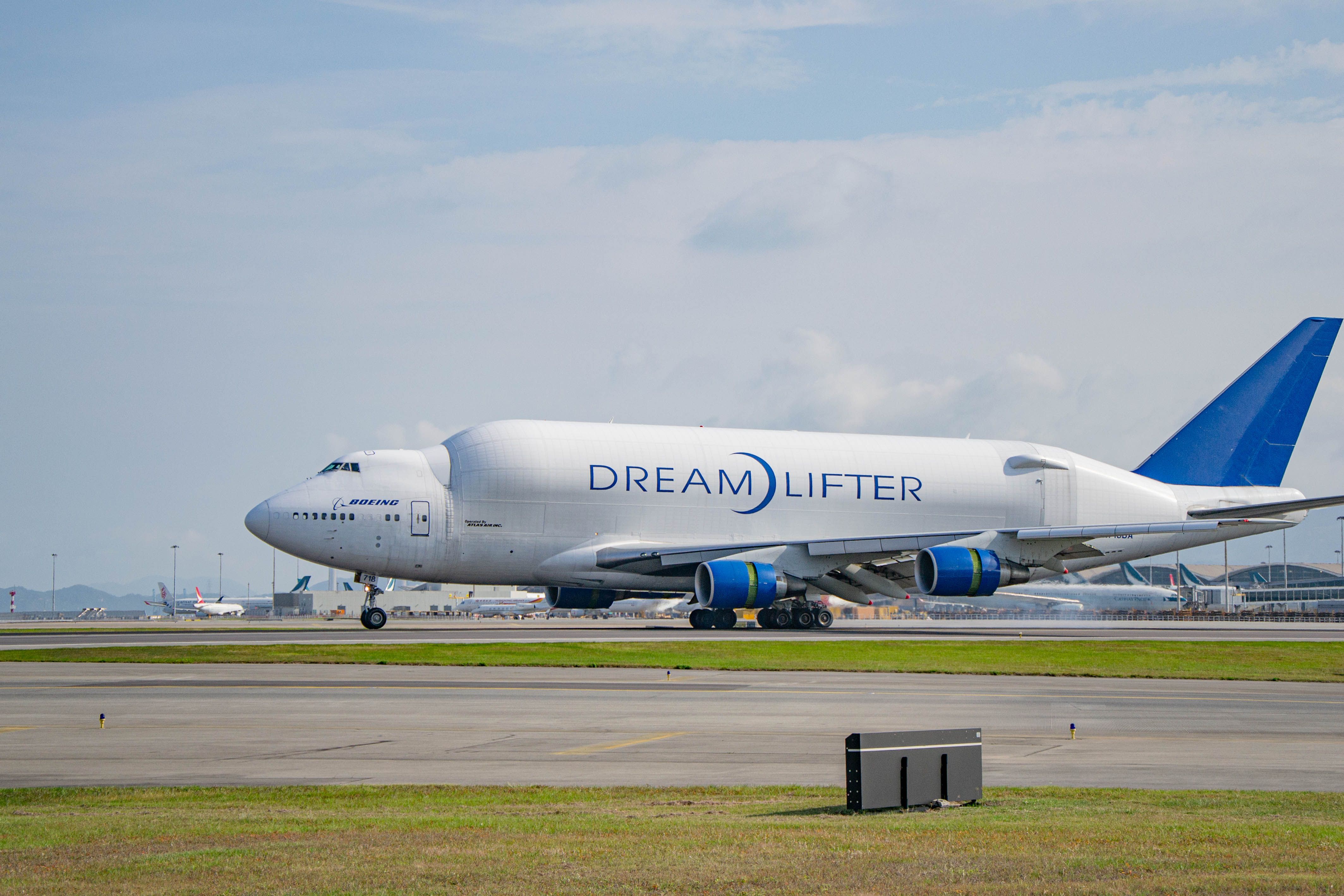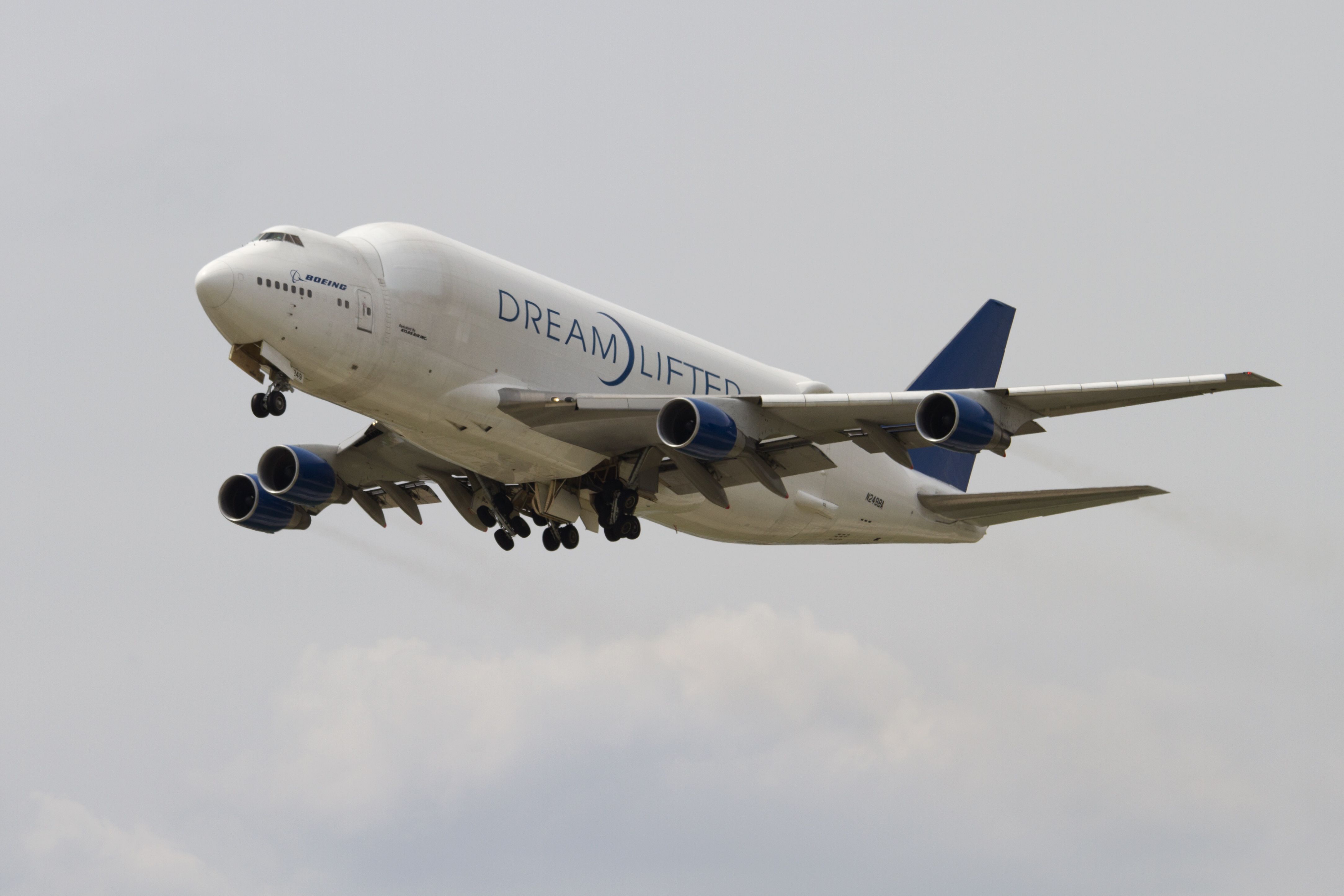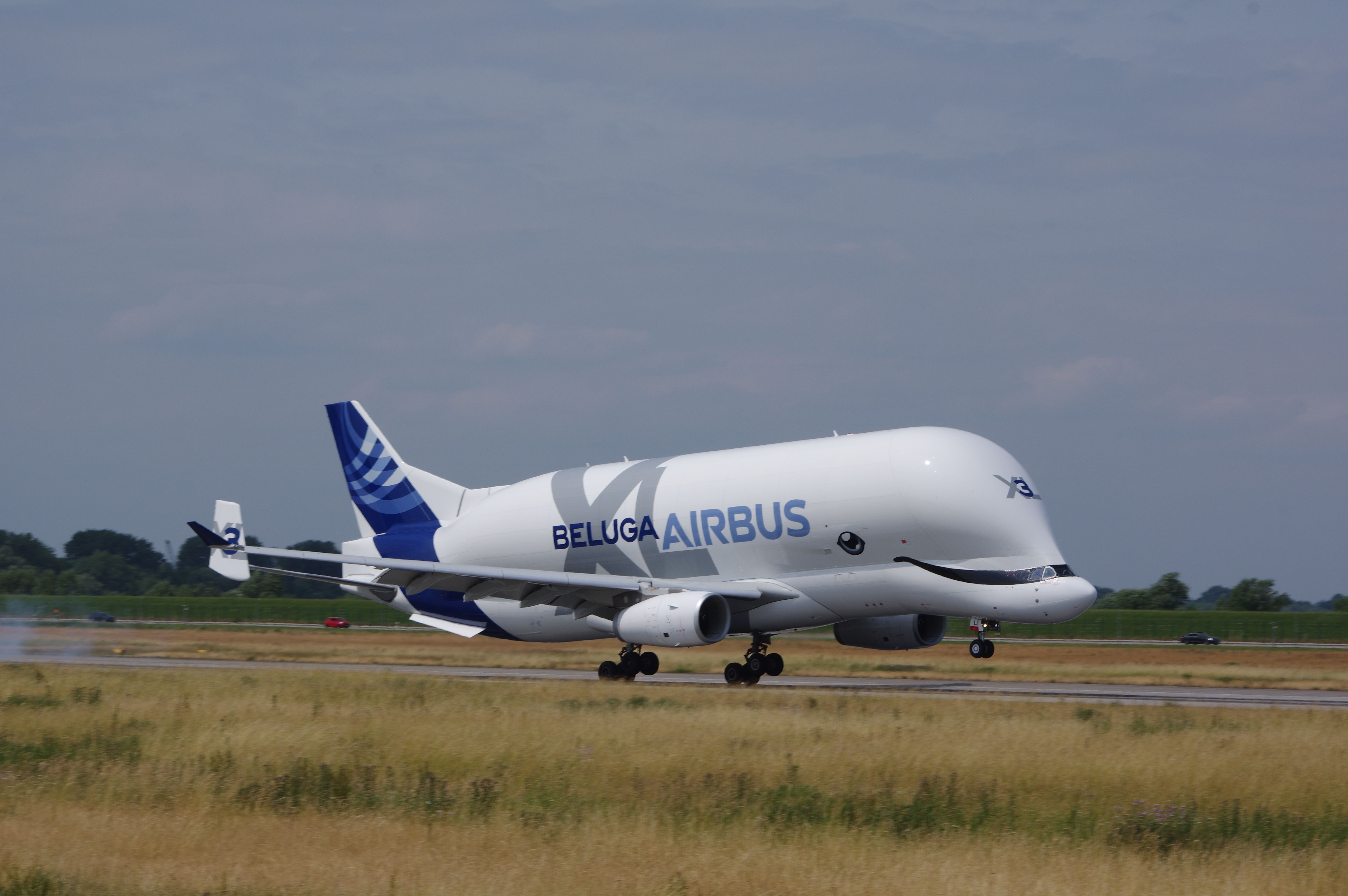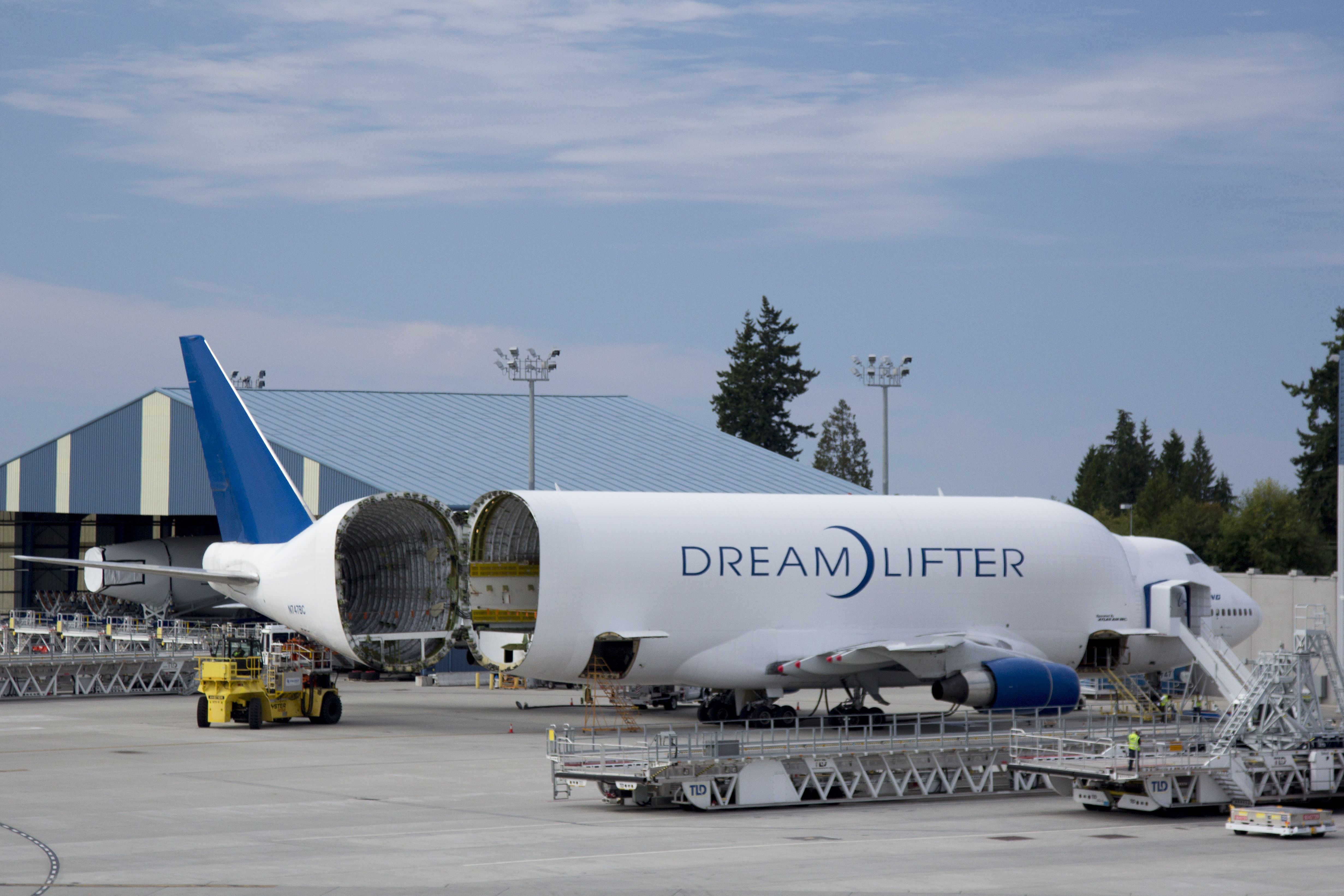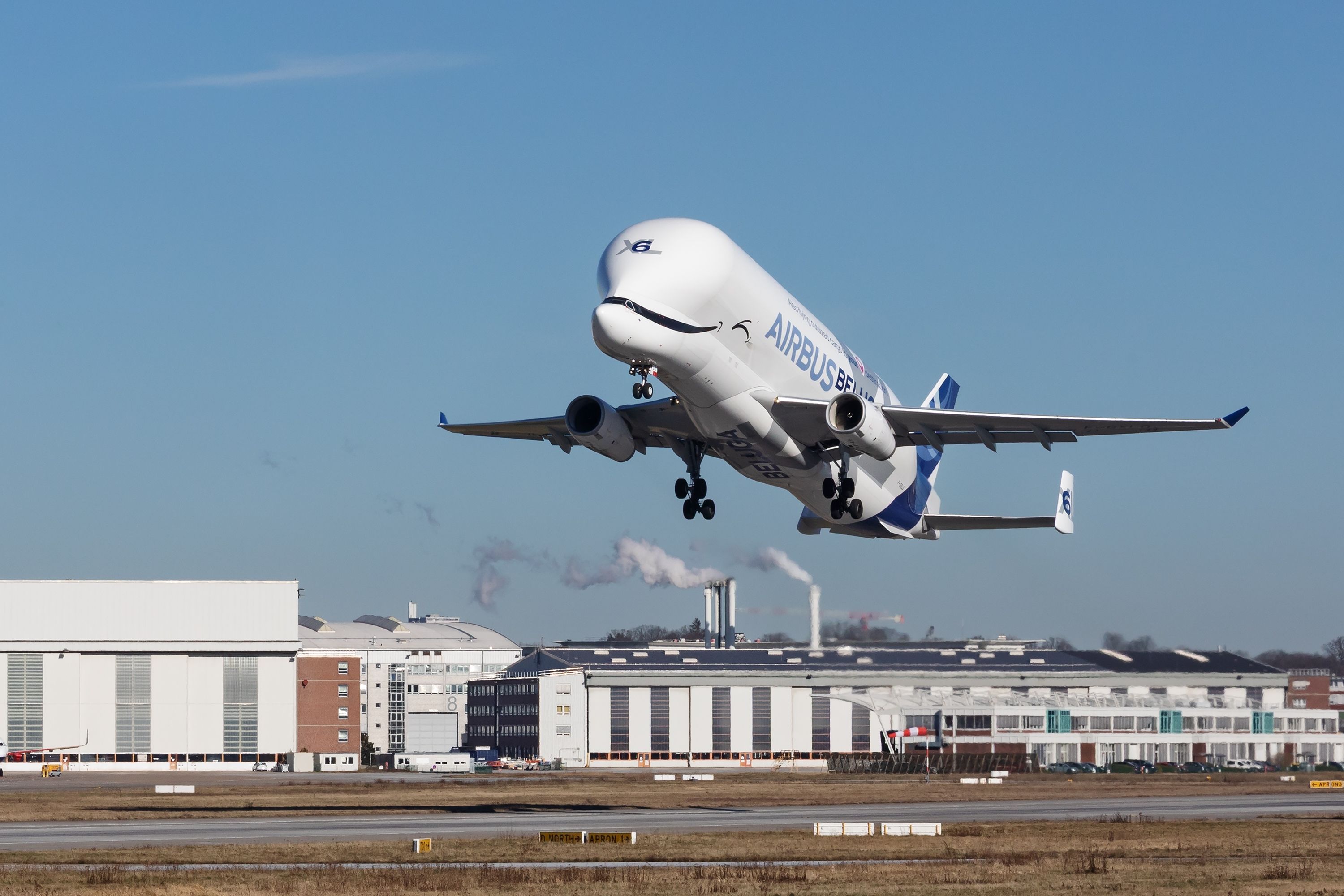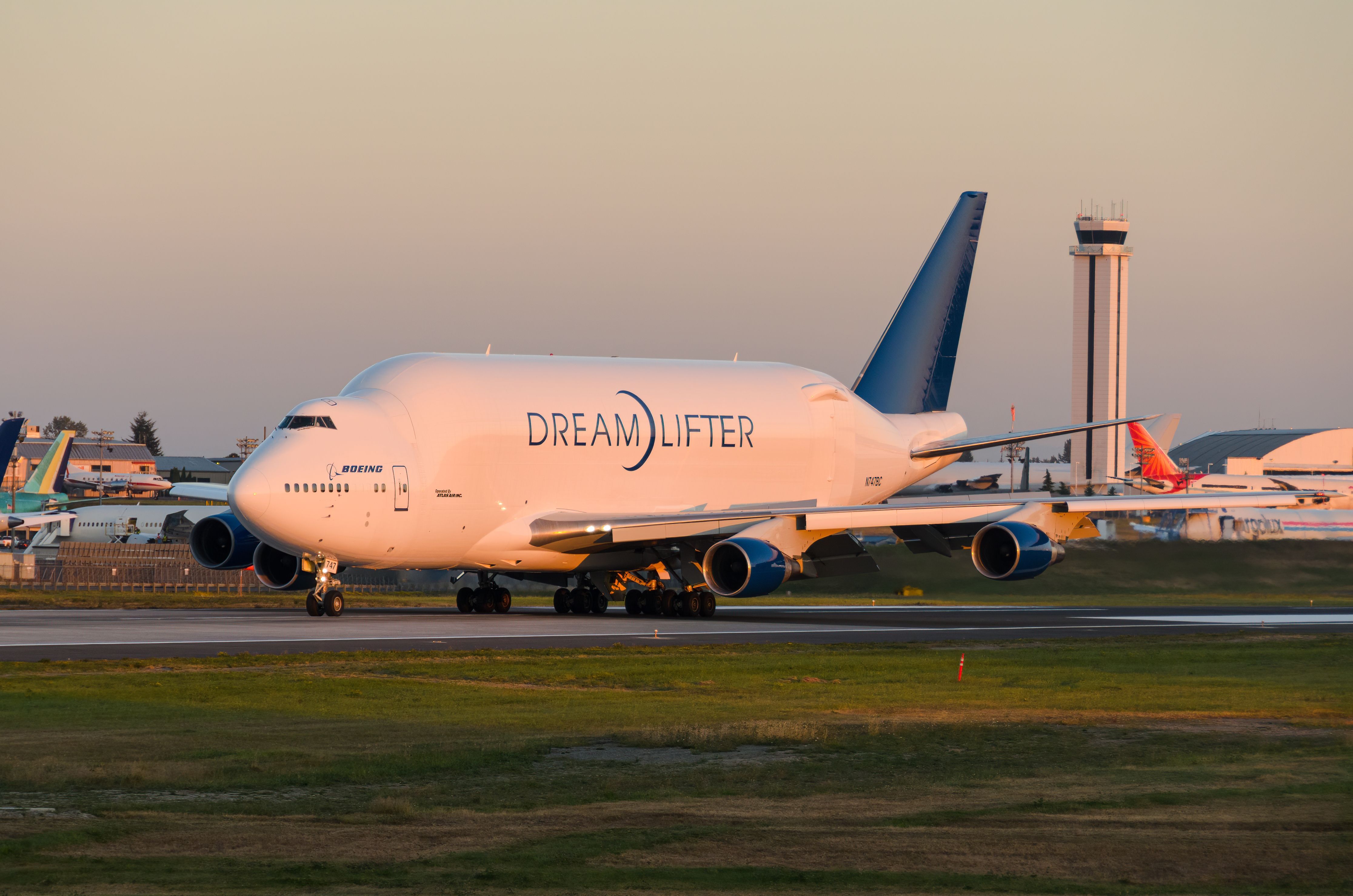Boeing and Airbus dominate the worldwide business aviation trade right now and produce the plane that type the core of most airline fleets world wide. Their jets are assembled from hundreds of thousands of elements produced throughout totally different areas. No single web site handles a whole plane from begin to end. As an alternative, wings, fuselage sections, and different massive constructions are manufactured individually and infrequently hundreds of kilometers aside.
Some smaller elements could be transported utilizing normal containers, however some parts are just too massive for typical transport strategies. For outsized elements like 787 fuselage barrels or A350 wings, this turns into a big logistical problem. To resolve this, each producers developed devoted outsize cargo plane.
These freighters are constructed particularly to help plane manufacturing and may carry massive elements that wouldn’t match inside normal cargo holds. Boeing has developed the Dreamlifter, a modified 747-400, whereas Airbus has launched the Beluga platform, with the newest model, BelugaXL, which relies on the A330-200F. These whale-shaped freighters have sparked a standard query: which one is definitely greater?
Boeing Dreamlifter Is Larger In Total Design Dimensions
Each the Dreamlifter and BelugaXL play a serious function in conserving manufacturing traces working and have grow to be important to their respective producers’ world provide chains. Given the character of the elements they carry, it’s no shock that each plane are exceptionally massive. However when evaluating the 2 when it comes to total exterior dimensions, the Dreamlifter comes out forward.
The US producer launched the Boeing LCF Dreamlifter (the place LCF means Giant Cargo Freighter) again in 2006. The corporate launched the plane to help the manufacturing of its 787 Dreamliner program, therefore the title Dreamlifter. The 787’s key structural parts are constructed throughout a number of international locations. As an example, the wings are assembled by Mitsubishi Heavy Industries in Nagoya, Japan, whereas main fuselage sections come from websites in Japan, Italy, and the US.
These elements are far too massive to suit inside typical transport containers and even normal 747 freighters. Shifting them by land or sea would have added each complexity and time, neither of which aligned with Boeing’s manufacturing calls for on the time. In response, the corporate developed the Dreamlifter as a tailor-made answer. As an alternative of designing a brand new plane from scratch, it transformed 4 retired 747-400s to serve this new function.
It saved the essential construction and wingspan the identical, however altered the fuselage and tail. The fuselage is expanded with a noticeably bulging higher part and prolonged additional utilizing a conical insert. The producer has additionally raised the tail by about 1.5 meters to take care of aerodynamic management with the redesigned form.
Boeing Dreamlifter Has The Benefit In Size, Top, And Wingspan
The distinction in dimension between the 2 plane comes right down to their unique airframes and the modifications utilized throughout conversion. Boeing selected the 747-400, which is a a lot bigger platform than the Airbus A330-200F utilized by the European planemaker. This start line formed the ultimate exterior dimensions and offers the Dreamlifter the sting in key measurements.
In line with SKYbrary, the Dreamlifter stretches 71.68 meters in size, stands 21.54 meters tall, and spans 64.4 meters throughout its wings. These figures place it among the many largest cargo plane ever operated. It’s powered by 4 Pratt & Whitney PW4000 engines, which is in line with the unique 747-400 platform.
In the meantime, the BelugaXL, whereas closely modified, relies on the smaller A330-200F. Regardless that it’s the largest plane in Airbus’ Beluga platform, its exterior dimensions stay smaller than these of the Dreamlifter. Its size is 63.1 meters, with a top of 18.9 meters and a wingspan of 60.3 meters. It’s powered by two Rolls-Royce Trent 700 engines, a twin-engine setup that contrasts with the Dreamlifter’s four-engine configuration and leads to a unique aerodynamic and structural profile.
Airbus BelugaXL Has Extra Inside Cargo Quantity
Whereas the Boeing Dreamlifter has the clear benefit in total dimension, these bodily dimensions are solely a part of the equation, particularly for plane designed to hold outsize cargo. By way of inner quantity, Airbus’ BelugaXL provides more room than its American counterpart. The plane has a complete cargo capability of 78,000 cubic toes, or roughly 2,209 cubic meters. This determine places it forward of the Dreamlifter, which holds 65,000 cubic toes, or about 1,840 cubic meters.
That distinction of 13,000 cubic toes provides the BelugaXL a measurable edge with regards to transporting massive however comparatively light-weight parts. For perspective, the BelugaXL’s cargo maintain is roughly 200 occasions bigger than the drum of an ordinary cement mixer. The freighter was launched by Airbus in 2020 to satisfy the elevated quantity calls for of its rising widebody platform, the A350.
In contrast to its predecessor, which might carry one wing at a time, the BelugaXL is able to flying two A350 XWB wings concurrently. The plane relies on the A330-200F and incorporates parts of each the A330-200 and A330-300 designs, together with a strengthened ground and an enlarged fuselage construction. Airbus initially launched the Beluga platform in 1995 to exchange the ageing Tremendous Guppy fleet.
The unique Beluga was developed from the A300-600 airframe, and supplied round 1,500 cubic meters of cargo quantity, taking part in an important function in transferring massive plane parts throughout Airbus’ decentralized manufacturing community. Over its service life, it carried the whole lot from satellite tv for pc {hardware} and helicopters to modules of the Worldwide Area Station. The BelugaXL marked a serious step ahead in capability; the European producer has elevated accessible quantity by greater than 50% in comparison with its predecessor.
How Else Do The Dreamlifter And BelugaXL Differ?
Other than dimensions and inner cargo quantity, the 2 plane additionally diverge in most take-off weight (MTOW) and structural design. The BelugaXL has an MTOW of 500,444 lbs (227,000 kg) and a most payload of 111,332 lbs (50,500 kg). In distinction, the Dreamlifter has an MTOW of 802,992 lbs (364,000 kg) and may carry as much as 330,690 lbs (150,000 kg) of payload. This offers the Boeing freighter almost thrice the payload capability of the Airbus mannequin.
The upper takeoff weight is essentially supported by the Dreamlifter’s four-engine configuration and its structurally heavier donor platform. Whereas plane parts are sometimes cumbersome somewhat than dense, the additional capability permits Boeing to hold heavier cargo when required. It has additionally allowed the Dreamlifter to serve roles past its unique function, together with world medical provide transport throughout the pandemic.
Characteristic
Boeing LCF Dreamlifter
Airbus BelugaXL
Based mostly On:
Boeing 747-400
Airbus A330-200F
Main Function:
Transporting Boeing 787 Dreamliner parts
Transporting Airbus A350 elements
Size:
71.68 meters (235 ft 2 in)
63.1 meters (207ft)
Wingspan:
64.44 meters (211 ft 5 in)
60.3 meters (197 ft 10 in)
Top:
21.54 meters (70 ft 8 in)
18.9 meters (62 ft)
Most Payload:
113,400 kg (250,000 lbs)
51 tonnes (51,000 kg or 112,437 lbs)
Fuselage Quantity:
1,840 cubic meters
2,209 cubic meters
Engines:
4 x Pratt & Whitney PW4056
2 x Rolls-Royce Trent 700 turbofans
One other key distinction between the 2 is how every plane is loaded. The BelugaXL contains a top-hinged cargo door that opens above the cockpit, which permits unobstructed entry to the complete higher fuselage. The cockpit is positioned decrease than the cargo ground, which permits massive parts to be slid straight into the maintain. The Dreamlifter, however, takes a unique method. As an alternative of a nostril door, it makes use of a swing-tail mechanism, probably the most distinctive modifications made to the 747-400.
Creating this tail system posed a problem for Boeing. The construction needed to stay safe underneath various load situations and flight environments, requiring a customized 21-bolt hydraulic locking system. To accommodate the swing-tail, the APU was eliminated to keep away from working gasoline traces by way of the hinge construction. Consequently, the Dreamlifter is dependent upon floor energy to start out its engines.
Moreover, loading additionally differs operationally. The Dreamlifter requires a devoted piece of apparatus often known as the DBL (Dreamlifter Bulk Loader), which is constructed by French producer TLD. It measures 35.96 meters and holds the Guinness World Document for the longest plane loader on this planet. In contrast, the BelugaXL could be loaded utilizing typical high-deck loaders tailored for its fuselage top and door configuration.
How Many Dreamlifters And BelugaXLs Exist?
Each the Dreamlifter and BelugaXL are extremely specialised plane, and solely a small quantity have been constructed. Boeing transformed 4 747-400s between 2006 and 2008 to create its Dreamlifter fleet. The donor plane got here from Malaysia Airways, Air China, and China Airways, and the conversions had been carried out in Taiwan. All 4 plane stay in lively service, operated straight by Boeing to move 787 parts between world manufacturing websites and remaining meeting traces within the US.
They’re mostly seen at key nodes in Boeing’s provide chain, together with Paine Subject in Everett and Charleston in South Carolina, with common journeys to cities like Nagoya and Grottaglie, the place main 787 constructions are produced. Airbus, in the meantime, has constructed six BelugaXLs to progressively substitute its earlier BelugaST fleet. These plane started flying in 2020 and are operated by Airbus Transport Worldwide.
They help manufacturing for varied Airbus fashions however are particularly tied to the A350 program resulting from their elevated quantity capability. The BelugaXL operates primarily inside Europe and is commonly seen at Airbus services in Toulouse, Hamburg, Broughton, and Bremen. Though hardly ever noticed outdoors Airbus’s inner community, the plane’s distinctive form tends to attract consideration each time it visits much less widespread areas.
Every Freighter Displays Its Producer’s Logistical Wants
In brief, the Boeing Dreamlifter and Airbus BelugaXL had been constructed for a similar function: transferring outsized plane parts effectively, however their method is totally different. The US planemaker prioritized size, wingspan, and payload. Airbus, however, centered on maximizing inner quantity, permitting the BelugaXL to hold a number of the largest elements in business aviation by dimension, if not by weight.
Every plane aligns carefully with its producer’s logistical wants. Boeing required a long-range, high-payload answer to attach far-flung 787 manufacturing websites, whereas Airbus prioritized inner house to help the transport of huge, light-weight parts between its European meeting areas.
Finally, neither plane is universally “higher.” The Dreamlifter is larger and stronger; the BelugaXL is roomier and extra specialised. Each have confirmed worthwhile to their respective producers and stay essential of their logistics chains that help plane manufacturing.
Launch Buyer(s)
Airbus Transport Worldwide
Size
207 ft 0 in (63.1 m)
Wingspan
198 ft 0 in (60.3 m)
Top
62 ft 0 in (18.9 m)

